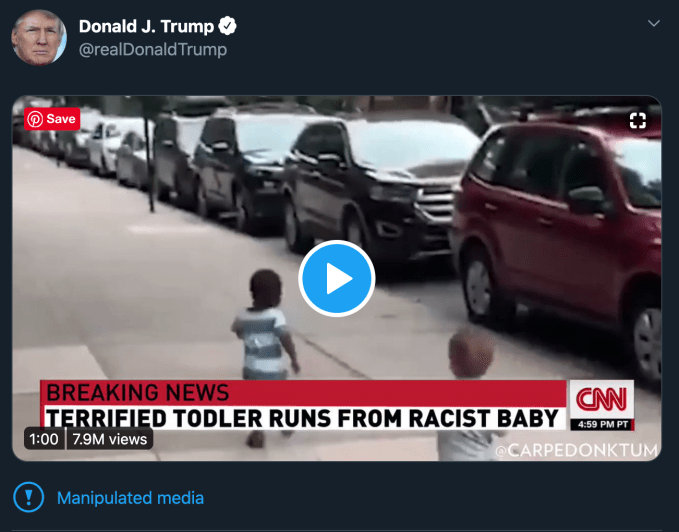France’s top court for administrative law has dismissed Google’s appeal against a $57M fine issued by the data watchdog last year for not making it clear enough to Android users how it processes their personal information.
The State Council issued the decision today, affirming the data watchdog CNIL’s earlier finding that Google did not provide “sufficiently clear” information to Android users — which in turn meant it had not legally obtained their consent to use their data for targeted ads.
“Google’s request has been rejected,” a spokesperson for the Conseil D’Etat confirmed to TechCrunch via email.
“The Council of State confirms the CNIL’s assessment that information relating to targeting advertising is not presented in a sufficiently clear and distinct manner for the consent of the user to be validly collected,” the court also writes in a press release [translated with Google Translate] on its website.
It found the size of the fine to be proportionate — given the severity and ongoing nature of the violations.
Importantly, the court also affirmed the jurisdiction of France’s national watchdog to regulate Google — at least on the date when this penalty was issued (January 2019).
The CNIL’s multimillion dollar fine against Google remains the largest to date against a tech giant under Europe’s flagship General Data Protection Regulation (GDPR) — lending the case a certain symbolic value, for those concerned about whether the regulation is functioning as intended vs platform power.
While the size of the fine is still relative peanuts vs Google’s parent entity Alphabet’s global revenue, changes the tech giant may have to make to how it harvests user data could be far more impactful to its ad-targeting bottom line.
Under European law, for consent to be a valid legal basis for processing personal data it must be informed, specific and freely given. Or, to put it another way, consent cannot be strained.
In this case French judges concluded Google had not provided clear enough information for consent to be lawfully obtained — including objecting to a pre-ticked checkbox which the court affirmed does not meet the requirements of the GDPR.
So, tl;dr, the CNIL’s decision has been entirely vindicated.
Reached for comment on the court’s dismissal of its appeal, a Google spokeswoman sent us this statement:
People expect to understand and control how their data is used, and we’ve invested in industry-leading tools that help them do both. This case was not about whether consent is needed for personalised advertising, but about how exactly it should be obtained. In light of this decision, we will now review what changes we need to make.
GDPR came into force in 2018, updating long standing European data protection rules and opening up the possibility of supersized fines of up to 4% of global annual turnover.
However actions against big tech have largely stalled, with scores of complaints being funnelled through Ireland’s Data Protection Commission — on account of a one-stop-shop mechanism in the regulation — causing a major backlog of cases. The Irish DPC has yet to issue decisions on any cross border complaints, though it has said its first ones are imminent — on complaints involving Twitter and Facebook.
Ireland’s data watchdog is also continuing to investigate a number of complaints against Google, following a change Google announced to the legal jurisdiction of where it processes European users’ data — moving them to Google Ireland Limited, based in Dublin, which it said applied from January 22, 2019 — with ongoing investigations by the Irish DPC into a long running complaint related to how Google handles location data and another major probe of its adtech, to name two.
On the GDPR one-stop shop mechanism — and, indirectly, the wider problematic issue of ‘forum shopping’ and European data protection regulation — the French State Council writes: “Google believed that the Irish data protection authority was solely competent to control its activities in the European Union, the control of data processing being the responsibility of the authority of the country where the main establishment of the data controller is located, according to a ‘one-stop-shop’ principle instituted by the GDPR. The Council of State notes however that at the date of the sanction, the Irish subsidiary of Google had no power of control over the other European subsidiaries nor any decision-making power over the data processing, the company Google LLC located in the United States with this power alone.”
In its own statement responding to the court’s decision, the CNIL notes the court’s view that GDPR’s one-stop-shop mechanism was not applicable in this case — writing: “It did so by applying the new European framework as interpreted by all the European authorities in the guidelines of the European Data Protection Committee.”
Privacy NGO noyb — one of the privacy campaign groups which lodged the original ‘forced consent’ complaint against Google, all the way back in May 2018 — welcomed the court’s decision on all fronts, including the jurisdiction point.
Commenting in a statement, noyb’s honorary chairman, Max Schrems, said: “It is very important that companies like Google cannot simply declare themselves to be ‘Irish’ to escape the oversight by the privacy regulators.”
A key question is whether CNIL — or another (non-Irish) EU DPA — will be found to be competent to sanction Google in future, following its shift to naming its Google Ireland subsidiary as the regional data processor. (Other tech giants use the same or a similar playbook, seeking out the EU’s more ‘business-friendly’ regulators.)
On the wider ruling, Schrems also said: “This decision requires substantial improvements by Google. Their privacy policy now really needs to make it crystal clear what they do with users’ data. Users must also get an option to agree to only some parts of what Google does with their data and refuse other things.”
French digital rights group, La Quadrature du Net — which had filed a related complaint against Google, feeding the CNIL’s investigation — also declared victory today, noting it’s the first sanction in a number of GDPR complaints it has lodged against tech giants on behalf of 12,000 citizens.
“The rest of the complaints against Google, Facebook, Apple and Microsoft are still under investigation in Ireland. In any case, this is what this authority promises us,” it added in another tweet.
Read Full Article

